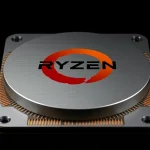Food Express Fleet Profile Committed to Sustainable Fuels

In a world increasingly focused on sustainability and reducing carbon footprints, companies are seeking innovative ways to transition to cleaner energy sources. One such company making strides in this direction is Food Express. With over a decade of experience in utilizing natural gas-powered tractors, they are at the forefront of the clean fuel movement. Their commitment to cleaner technologies is not just environmentally motivated; it also offers significant financial advantages.
Transitioning to Natural Gas: A Strategic Decision
Food Express made the pivotal decision to adopt natural gas-powered tractors based on a combination of environmental goals and economic incentives. “When we started, there was grant money for fleets based in California buying alternative fuel vehicles,” explained Kevin Keeney, the president of Food Express. This funding helped to mitigate the higher upfront costs associated with natural gas tractors, making them more financially viable compared to traditional diesel engines.
Yet, the benefits extend beyond initial costs. Keeney pointed out that while diesel may offer a higher energy density per gallon, natural gas prices tend to be more stable and competitive in the long run. This predictability is particularly important for a company that relies heavily on PTO-driven blowers for unloading bulk commodities, as these operations often lead to higher maintenance costs due to forced regenerations in diesel engines.
Expanding the Fleet with Compressed Natural Gas (CNG) Tractors
As of now, Food Express boasts a fleet of 94 CNG-powered tractors, primarily comprised of Kenworth T680s equipped with 12-liter Cummins engines. However, Keeney is already looking to the future by incorporating the new Cummins X15N engine, a significant upgrade that enhances performance and fuel efficiency.
“As a bulk hauler, we deal with heavy loads, sometimes as much as 105,500 lbs,” Keeney noted. The larger engine offers the torque and pulling power necessary to handle these demanding routes more efficiently, a stark contrast to the previous 12-liter models. The new 500-HP Cummins X15N, with an impressive 1,850 lb-ft torque rating, promises up to a 10% improvement in fuel economy compared to its predecessor.
- 500-HP engine provides diesel-like range for long hauls
- Common components reduce parts and maintenance costs
- Weighs less than earlier Cummins 15-liter models
“Each CNG tractor has a 90 diesel gallon equivalent,” Keeney explained. While this may limit range, it's typically sufficient for their over-the-road operations. Drivers have adapted to monitoring the pressure, often finding they have more range than anticipated.
Fuel Systems and Collaborative Partnerships
The success of Food Express's transition to CNG is partly attributed to its advanced fuel systems. Utilizing Hexagon Agility systems specifically designed for heavy-duty trucks, these setups include frame rail-mounted tanks to optimize space and functionality. “We didn’t want a back-of-cab fuel tank, so Agility designed a mounting system for the frame rail,” Keeney shared. This collaboration has resulted in improved technology for fuel systems over time.
Food Express also partners with Clean Energy Fuels Corp., which supplies the fleet with renewable natural gas (RNG). This partnership began in 2015 as the company transitioned to natural gas trucks. “By operating with RNG, our trucks will have a net carbon negative rating,” Keeney stated, emphasizing the environmental advantages of using a fuel derived entirely from organic waste.
Understanding the Clean Fuel Movement
To grasp the significance of Food Express’s sustainability initiatives, it's essential to understand what constitutes a clean fuel fleet. Clean fuel vehicles, such as those powered by CNG, are designed to minimize emissions compared to traditional diesel engines. The benefits include:
- Reduced greenhouse gas emissions
- Lower operational costs due to stable fuel prices
- Less environmental impact from fuel production
These vehicles are not only beneficial for the environment but also provide companies with a means to comply with increasingly stringent emissions regulations.
A Brief History of Food Express
Founded in 1983, Food Express initially specialized in transporting bulk corn starch and bakery flour. Over the decades, the company has diversified its operations to include a wide array of bulk products, including non-food-grade dry and liquid commodities as well as non-hazardous liquid chemicals.
With headquarters in Palmdale, California, Food Express operates from seven terminal locations across the West Coast, from Arizona to Washington. This extensive network enables them to meet the varied needs of bulk product shippers efficiently. Today, the fleet has expanded to 225 tractors and 450 trailers, integrating modern technology such as McLeod Software TMS, Samsara ELDs, and Air Weigh on-board scales for enhanced operational efficiency.
Looking Ahead: The Future of Sustainability
Keeney is optimistic about the future, particularly in exploring hydrogen-powered vehicles and electric heavy-duty trucks. However, he remains cautious about their potential for carrying capacity. “A 10,000 lb loss of payload means we’d need 20% more trucks and drivers,” he warned, highlighting the logistical challenges involved.
Food Express is dedicated to true sustainability measures. “Even CNG is a refined fuel, but it’s the closest thing today to a product that comes from the ground,” Keeney elaborated. He emphasizes the importance of not only seeking immediate benefits but also considering the overall sustainability of the fuel source.
As the landscape of transportation evolves, Food Express stands as a testament to how businesses can innovate for environmental responsibility while maintaining economic viability. This dual focus on sustainability and operational efficiency may well set a benchmark for others in the industry.
For further insights into sustainable fleet management, consider watching this informative video:




Leave a Reply